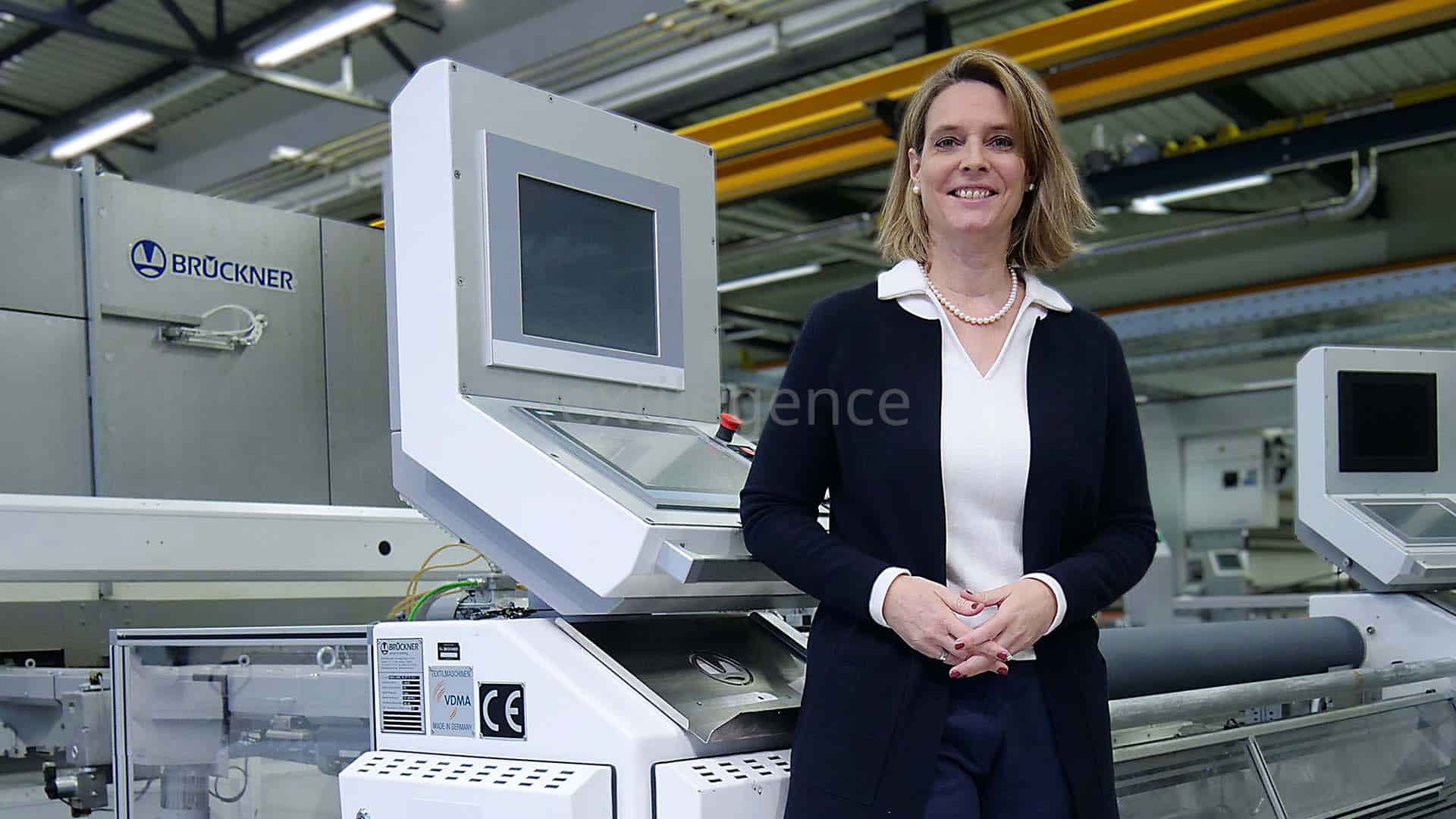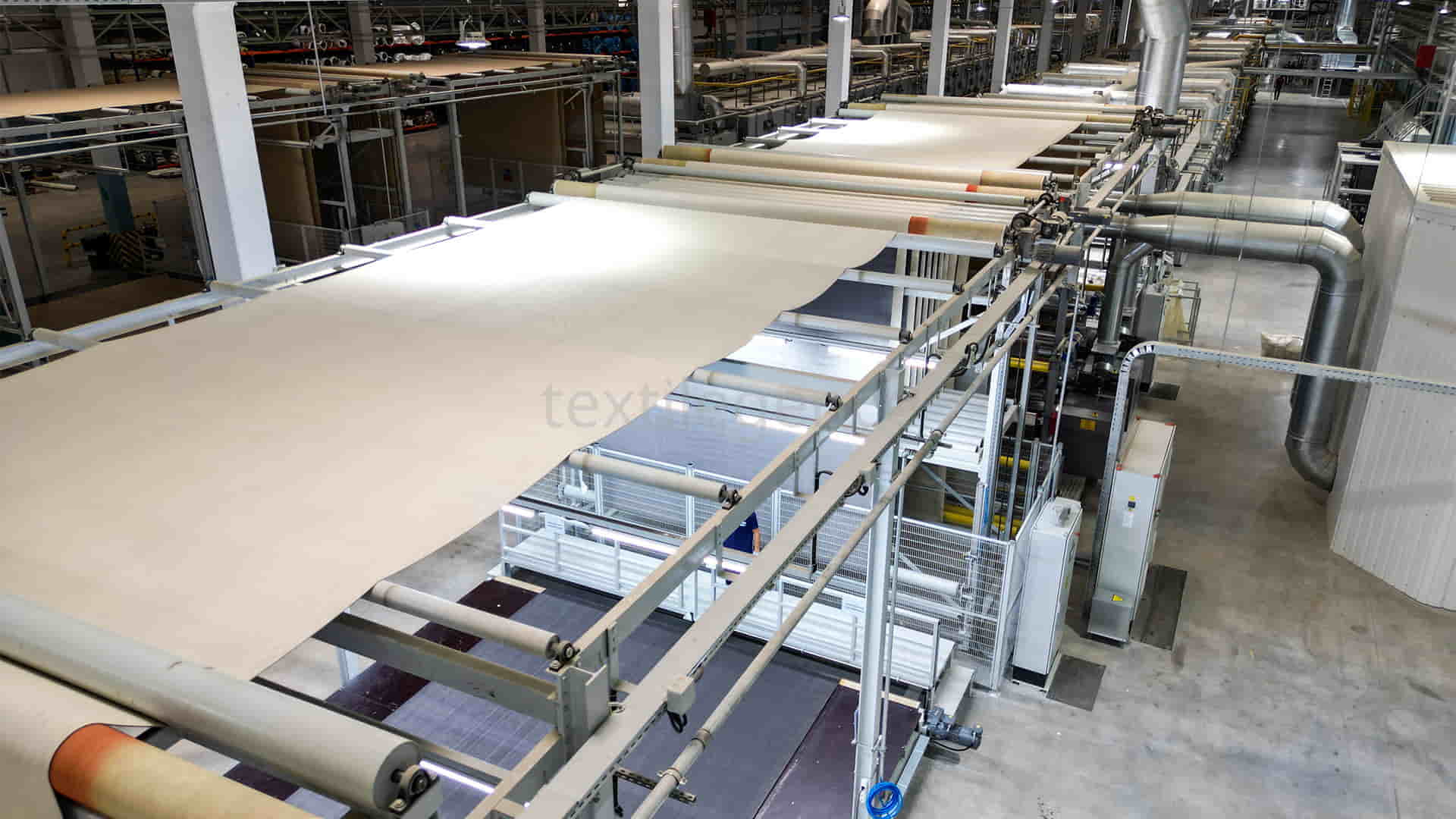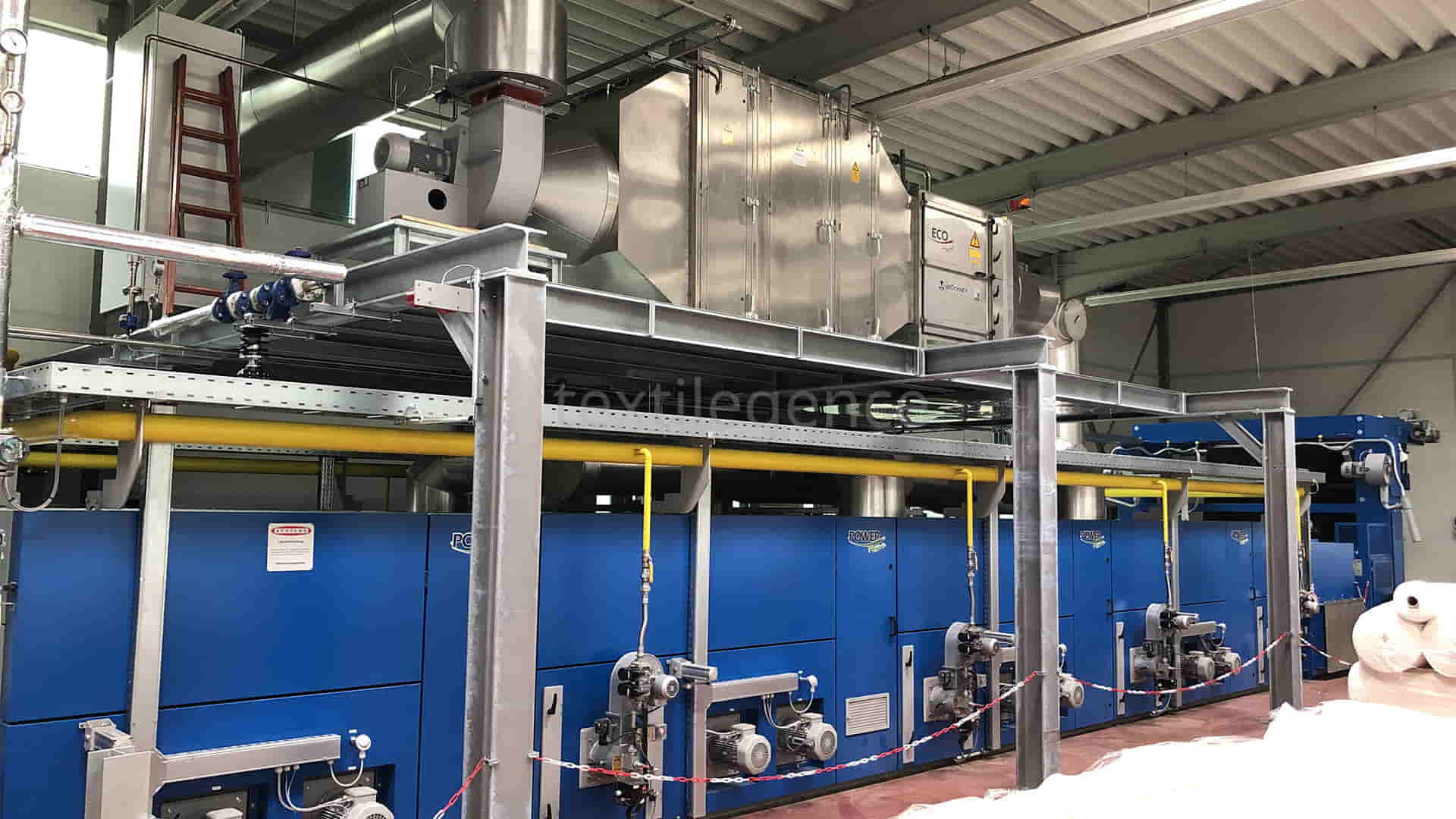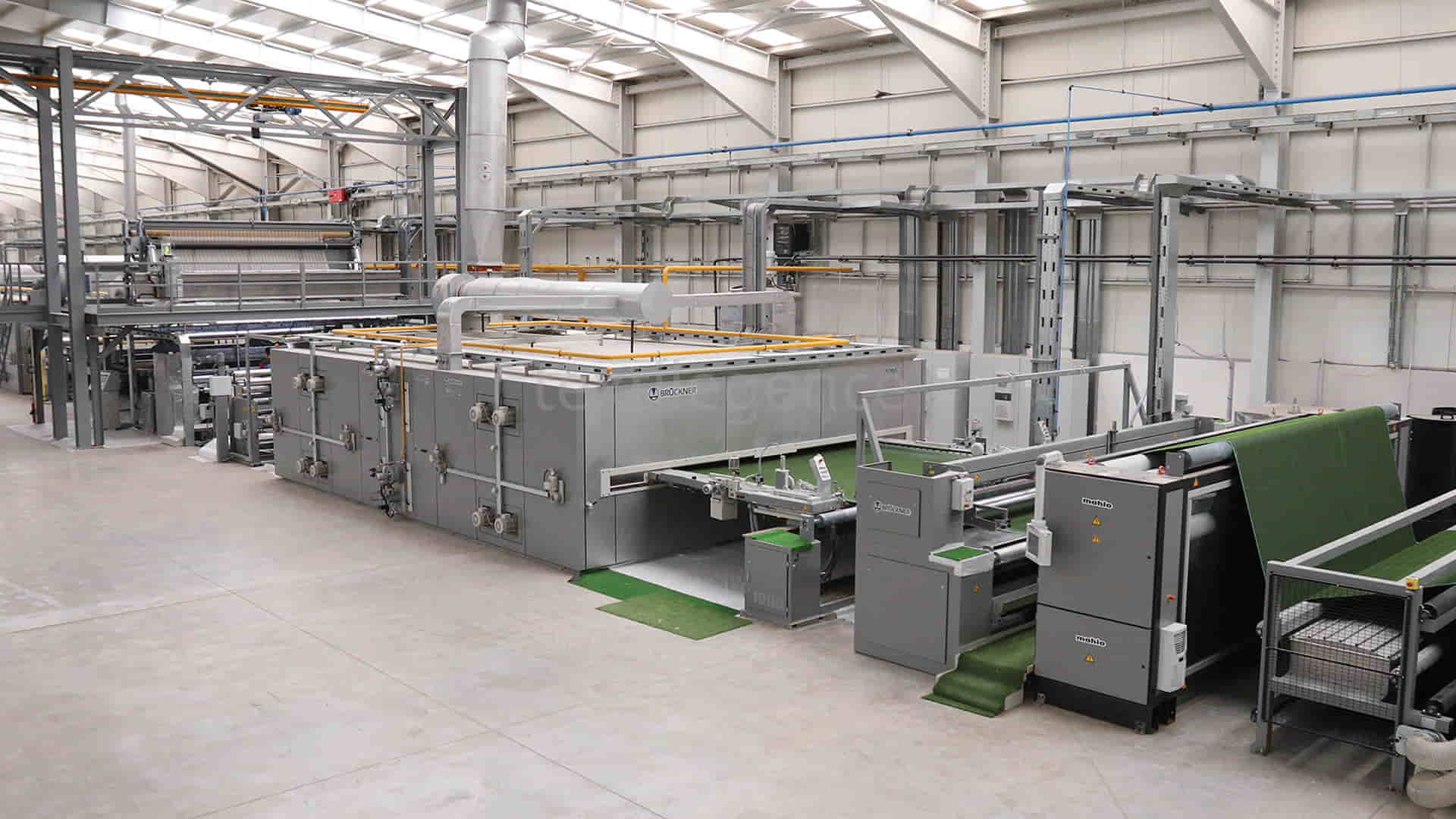One of the market-leading developers of machines in the textile industry, Brückner has serviced its customers worldwide for decades with its great customer support and the advantages its solutions offer in the long term. Verena Ruckh, Head of Marketing Department at Brückner talking to Textilegence, said that they look back with pride on Brückner’s 75th anniversary year, which they celebrated last fall together with their employees and former employees; “During the preparations for this celebration, we took a closer look at the company’s history and this was very interesting because we once again became aware of many great developments and milestones achieved over the last few decades. I think we can be really proud of what we have achieved as a team and as a company since 1949.”
From a small engineering office into a worldwide leading company
Noting that they have developed from a small engineering office into a worldwide leading company, Verena Ruckh stated that they designed many new machines, developed innovative machines and processes and their brand has become well established in the global textile industry. She underlined that their employees have played a large part in this, as well as the customers around the world who have trusted them for decades, who work with them on new solutions, drive developments forward and follow the latest trends. “Only those who stay on the ball can be successful in the long term. And only with mutual trust can we and our customers benefit from this success,” she said.

“We are optimistic about 2025”
Verena Ruckh evaluated 2024 in terms of the economy: “Last year was indeed not an easy year for us. Many factors played a role here: the war in Ukraine and the Middle East, countries that no longer had any foreign currency and were therefore no longer able to finance machines and much more. Customers postponed orders several times or even cancelled them completely, which made long-term planning almost impossible for us. There were many fluctuations and uncertainties. Of course, we felt a decline in incoming orders just as much as other companies. However, we are fortunate to have a very broad base and we are not dependent on specific markets or products.” Ruckh relayed that they supply customers worldwide, not only in the traditional clothing sector but also in the areas of technical textiles, floor coverings, nonwovens and glass fabrics and added: “At the same time, we take advantage of such times of weaker orders to invest even more in research and development. This means that we are well equipped when the economy picks up again.”
She defined her forecasts for 2025 in Germany as cautiously optimistic, saying that many people are unsettled by the current political situation in Germany and are not very keen to consume. “At the same time, we are seeing a slight increase in willingness to invest among our customers worldwide. All in all, it will certainly be another year full of challenges, but we hope that things will pick up again significantly from the second half of the year at the latest,” she disclosed.
“Textile finishing can be sustainable”
Verena Ruckh agreed that textile finishing is undoubtedly a very energy-intensive process, saying however, she does not believe that this is necessarily associated with an extremely high environmental impact. “Of course, pollutants are released into the exhaust air during some coating or finishing processes, but we offer appropriate exhaust air purification systems that separate out such pollutants so that they are not blown out of the chimney. There are various approaches to significantly reducing energy consumption and achieving sustainable textile production. For example, existing systems can be converted to electric heating or heat recovery systems can be retrofitted. In the long term, this is not only a cost-saving for our customers, but also an opportunity to reduce their own CO2 footprint, e.g. if green electricity is also used,” she continued.
Ruckh added that their focus continues to be on sustainable products and technologies in the research and development studies and disclosed: “It is just as important to recognize trends in textile production and respond with corresponding new products or processes. In order to implement this in the best possible way, we are in constant contact with our customers. They know best how markets are developing and which trends will prevail.”

“Machinery investment is more than purchasing a product”
She noted that the machinery investment should be considered in the long term, instead of the purchasing of a product; “An investment in our machines is ‘expensive’ at first glance, that’s true. However, you have to look at such an investment in the long term and this is where our customers can save money. All our machines and lines are very energy-efficient, so resources like gas, oil or electricity can be reduced, and with the right parameter settings, productivity can be increased even further. The annual costs for operating a Brückner line are therefore significantly lower than for other machines and the higher investment is usually amortized after a short period of time. Customers also benefit from the longevity of our machines, which usually produce for over 20 or 30 years, some even longer,” she said.
Ruckh added that in their technology center, customers are able to run fabric trials before purchasing a machine or to develop new products together with their technologists: “After the results have been evaluated in our laboratory, a machine configuration specially adapted to the customers’ needs is determined. The customer thus receives a machine that is perfectly tailored to his products and his special requirements.”
“Türkiye remain an important key market also in the future”
Verena Ruckh mentioned their long-term relationship with the Turkish market, saying that they are really proud and happy about the many customers they have in Türkiye. “Many of them have been buying from us for decades and we now have a really friendly relationship with most of them. This is also part of our philosophy. We do not just sell machines, we build a partnership with our customers so that we can always support and advise them,” she continued. In addition, Ruckh noted that they would also like to take this opportunity to thank their local representative Inter Tekstil, who usually establishes the first contact with the customer and maintains this contact on an ongoing basis. “With our local technicians and a large stock of spare parts on-site, we are able to respond to every inquiry quickly and in the Turkish language. This benefits both sides. Customers in Türkiye also appreciate our user-friendly systems, the ease of maintenance, the productivity of our machines and the outstanding local service,” she relayed.

She reminded that Türkiye has been a very important market for Brückner for many decades and has already survived a crisis: “We believe in the Turkish textile and carpet industry, which employs a large number of well-trained and dedicated people. Here we can contribute our many years of experience and know-how to the benefit of both sides. In our view, Türkiye is the pivotal point between Europe, Asia and the MENA countries. This market will therefore remain an important key market also in the future,” she concluded.



